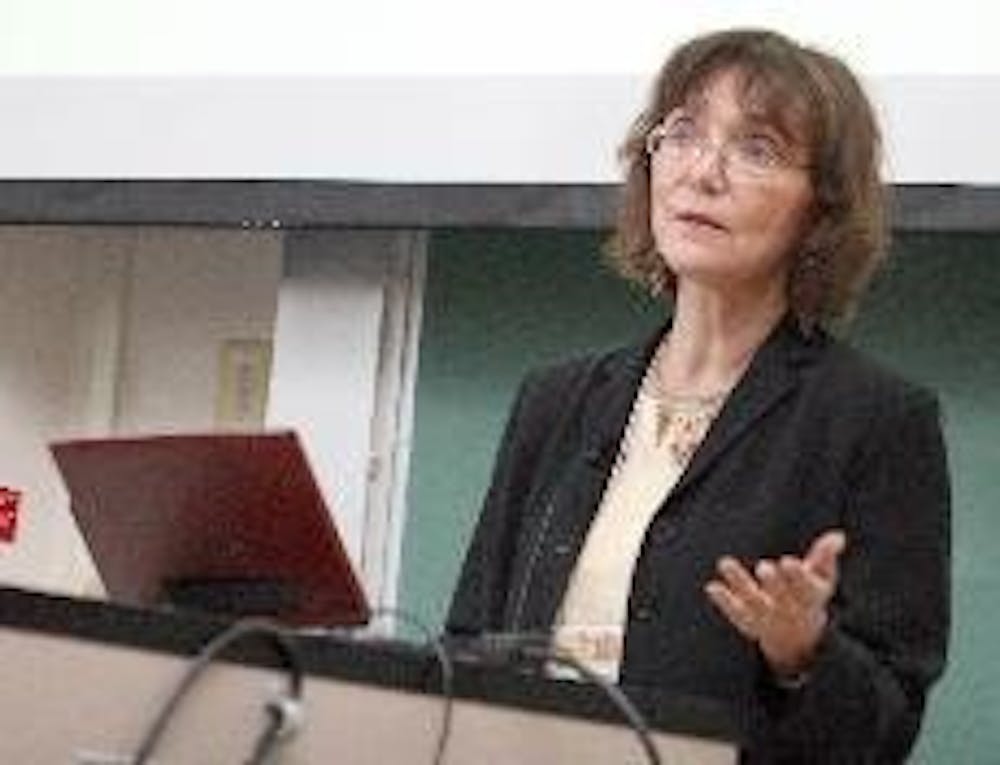
Clara Rodriguez, professor of sociology and anthropology at Rodham University, addresses Latino "invisibility" at Laws Hall Thursday evening.
Rita Hayworth was born Margarita Carmen Cansino and like other Latino stars of her time she changed her surname to Hayworth when she had trouble finding work in Hollywood.
Clara Rodriguez called her an invisible Latina.
Rodriguez, professor of sociology and anthropology at Fordham University in New York City, addressed this and other issues surrounding Latino representations in the media at a Thursday evening lecture in Laws Hall.
According to Rodriguez, the "invisibility" of Latino and Latina actors in film and television reinforces the stereotypes that are actually presented in those media.
"Latinos are the youngest, most inappropriately dressed characters, with the heaviest accents," Rodriguez said referring to a 2005 study. "Latinos were also the least intelligent and least articulate characters."
Rodriguez first became interested in the popular media, she said, when she realized the impact it had on her students' views and perspectives.
"I found that my students could speak more in congress about a movie or a TV show than any book," Rodriguez said.
Pedro Segovia, a communication graduate student at Miami University and native Colombian, said he agreed with Rodriguez's outlook.
"I think especially ... when they show Latinas, if you watch a movie today ... it's always the same role, the same accent," Segovia said. "They tend to focus on one character."
In the United States, including Puerto Rico, the estimated Latino population is about 50 million-more than 15 percent of the population.
Enjoy what you're reading?
Signup for our newsletter
According to Rodriguez, Latinos are the largest and fastest growing ethnic minority group in the country. By the year 2050, she said, it is estimated that one quarter of the United States population will be composed of people of Hispanic origins.
And although, Rodriguez said, many think of Latinos as immigrants, the history of Latinos in the U.S. goes back centuries.
But Rodriguez's argument did not address Latinos alone. She said that stereotypes in general are a problem that the United States as a whole needs to address.
"People don't know what a stereotype is," Rodriguez said. "They don't know that they're stereotyping. A stereotype is absolute. You all know that Latinas are sexy, blacks can dance and Irish are drunks."
According to Rodriguez, a stereotype, unlike a generalization, is not based on evidence. A generalization is subject to change when the evidence changes.
The lecture came in light of Rodriguez's ninth book, Heroes, Lovers and others; the Story of Latinos in Hollywood.
Following her lecture, Rodriguez again emphasized the importance of diversifying representations and viewpoints and avoiding stereotypes.
"We're all guilty of seeing things in a certain way," Rodriguez said. "In science, they have always known that if you have to tackle a problem, you want as many diverse views as possible."




